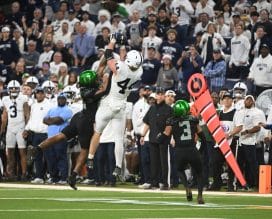Phillies
Are the 2017 Phillies historically bad?
By: Matt Alberston, Historical Columnist
I sat in a blue plastic Citizens Bank Park seat on Monday night and was thoroughly disappointed at what I saw. Not only did the weather keep possible fellow Phillies fans away from the park, but the product on the field was absolutely abhorrent. Neither the fans nor the Phillies themselves were enthusiastic about the game. The team entered May with a 11-12 record, good enough for second place in the National League East. They have since lost 16 of 20 contests dating back to May 1 and now have the least amount of wins in the division. The team's play in the month of May begs the question; are the Phillies historically bad in 2017?
Monday, Sports Talk Philly Editor Tim Kelly wrote a piece on how the Phillies are on pace to lose over 100 games for the first time since 1961. Those 1961 Phils were 47-107 and are the only Phillies club to lose 100 games since the end of World War II. The 1961 Phillies are one of 14 teams in club history to lose at least 100 games in a season. The 2017 Phillies are on pace to lose approximately 105 games and have one thing in common with the other 14 teams that have lost at least 100 games – a horrendous runs against total and average.
Trending: Phillies do indeed have interest in Bryce Harper, per report
The current Phillies have averaged 5.0 runs against per game, which projects to 810 runs against for the entire year. That ranks 23rd worst in club history since the modern era began in 1901 (115-year sample size; the 1930 Phillies gave up a franchise worst 1,199 runs against total, an astounding 7.69 runs against average!). But if you whittle that list down a bit further, you'll find that projects to be the sixth worst runs against total since the implementation of the 162 game schedule in 1961 (55-year sample size). Of that group, only the 2006 and 2007 Phillies had winning records This last part is important because it demonstrates that a large runs against total does not alone guarantee a bad record; after all, the 2007 team ended a 14-year playoff drought and ushered in the greatest era in franchise history.
A team is in good shape if it can score more runs than it gives up, and this was true in the case of the 2006 and 2007 teams. Last year, the Phillies offense scored the 34th fewest runs in a season (610 total runs) since 1901 and scored the sixth fewest runs since the implementation of the 162 game schedule. In contrast, the current Phillies have scored 183 runs to date at an average of 4.38 runs per game. This projects to 709.71 total runs scored for the season – nearly 100 runs more than last year – and would rank 22nd most runs scored since 1961. That puts the 2017 Phillies as a little above average in this sample pool.
When combined, the 2017 Phillies' 709.71 runs scored and 810 runs against places the Phillies in the neighborhood of the 1998 Phillies – 713 runs scored and 813 runs against – who finished the season with a 75-87 record (.463 winning percentage). Per Baseball-Reference, the 1998 Phillies were a little lucky. According to the Pythagorean W-L percentage, they should have gone 72-90. The formula, detailed below from Baseball-Reference, is about as "scientific" a projection as we can use this early in the campaign.
When the projected runs scored and runs allowed are entered into the formula, the 2017 Phillies project to finish the season with 75-76 wins and a .467 winning percentage. So if the Phillies played the average between April and May, they'll likely end up average at the end of the year with an improvement in the wins and a bright outlook entering Spring Training in 2018.
Phillies Nuggets: Quarter season MVP, LVP and more awards!
Statistics are good in evaluating past performance but aren't always a harbinger of projected truth. As Tim Kelly explained in his piece, the Phillies have played a very tough schedule in the first quarter of the 2017 season, so a lot of losses early on shouldn't be that surprising. As far as legitimately projecting the end of year win-loss total, it's probably an impossible effort, because anything is possible in sports, especially baseball. Consider that the 1914 Boston Braves were the National League caboose on July 4, 15 games behind the league leading Giants. Yet they completely turned their season around in the second half, winning the National League pennant by 10.5 games over those same Giants and sweeping the vaunted Philadelphia Athletics in the World Series. At the other end of the spectrum, the 1964 Phillies spent most of the year in first place, but blew a 6.5 game lead with 12 games remaining to the St. Louis Cardinals, who dispatched the Yankees in the World Series in seven games.
My assumed projection at the beginning of the season was that the team would finish the season with a 77-85 record. This assumed that the offense would be much improved (which has proven true thus far). We can hope/expect to see a few highly touted prospects earn promotions this summer, especially as some veterans are moved. Plus, September call ups will infuse the club with more prospects, who might inject the clubhouse with some late life. The current Phillies aren't the 1914 Braves, nor are they the 1941 Phillies. But they are likely to end up being a slight improvement over the 2016 Phillies. So despite the fact that they are 4-16 in their last 20 contests, the Phillies aren't likely to end up being a historically bad team.





